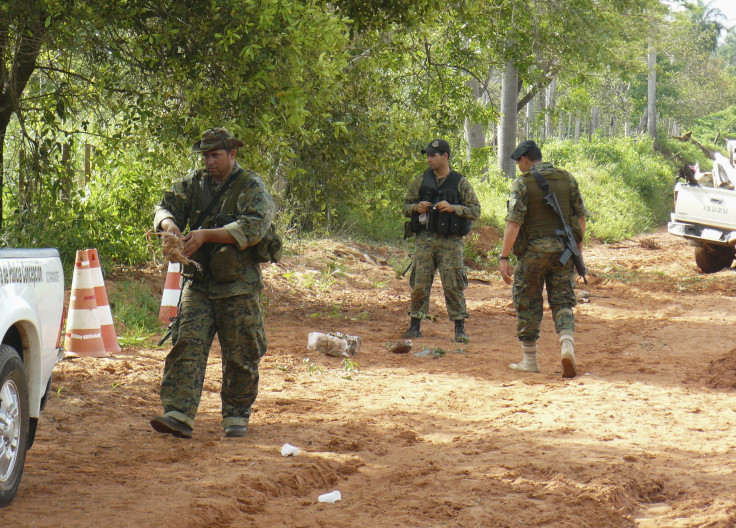German Couple Working As Farmers Killed In Paraguay; Government Blames Leftist Guerrillas

A German couple, working as farmers in Paraguay, was found dead with multiple bullet wounds on Thursday, 10 hours after the two were kidnapped from their ranch, media reports said. Their bodies will reportedly be returned to Germany.
Government officials said Paraguayan People’s Army (EPP), a leftist paramilitary group, was behind the killings, which occurred after the militant group exchanged fire with the Paraguayan military, the Associated Press reported.
Roberto Natto, 60, and Erika Reiser, 53, who died Thursday midnight, may have been killed by the Communist guerrilla insurgency group as retaliation for the military intervention, Interior Minister Francisco de Vargas reportedly said.
The couple had been working on a farm around 155 miles away from the Paraguayan capital of Asuncion. They were abducted along with four other ranch workers, who had reportedly managed to escape. “The captors wore camouflage uniforms and were apparently directed by Esteban Marin, a member of the criminal Paraguayan People's Army,” one of the worker told Deutsche Welle.
Earlier this week, the rebels had reportedly left a note at a nearby farm that read, “Nature is not ours; it is only borrowed from future generations,” along with a demand for a $300,000 payment and free beef for nearby communities, allegedly as punishment for deforestation.
The demands were delivered to the farm’s owner, Osvaldo Dominguez Dibb, who is a former president of a Paraguayan football club and a stakeholder in several major businesses. EPP had given Dibb until Feb. 6 to meet the rebels' demands, The New York Times reported.
EPP, which began its revolt in 2007, has staged a number of violent attacks over the years, including bombings, arson, shooting and kidnapping, and has frequently attacked farms as well as police and military posts. The leftist group is likely acting against industrialized agriculture, the BBC reported, and has also been linked to drug smuggling groups including the Revolutionary Armed Forces of Colombia, known as FARC.
In 2010, then-President Fernando Lugo declared a state of emergency, sending 200 troops to find the rebels. That attempt, as well as another in 2011, resulted in some arrests but failed to hobble the group’s operations.
In August 2013, President Horacio Cartes declared a major campaign against the rebels following his election. In 2014, several of the group's members were killed or arrested, including one of the leaders, according to a report by the organized crime tracker InsightCrime.
© Copyright IBTimes 2024. All rights reserved.





















